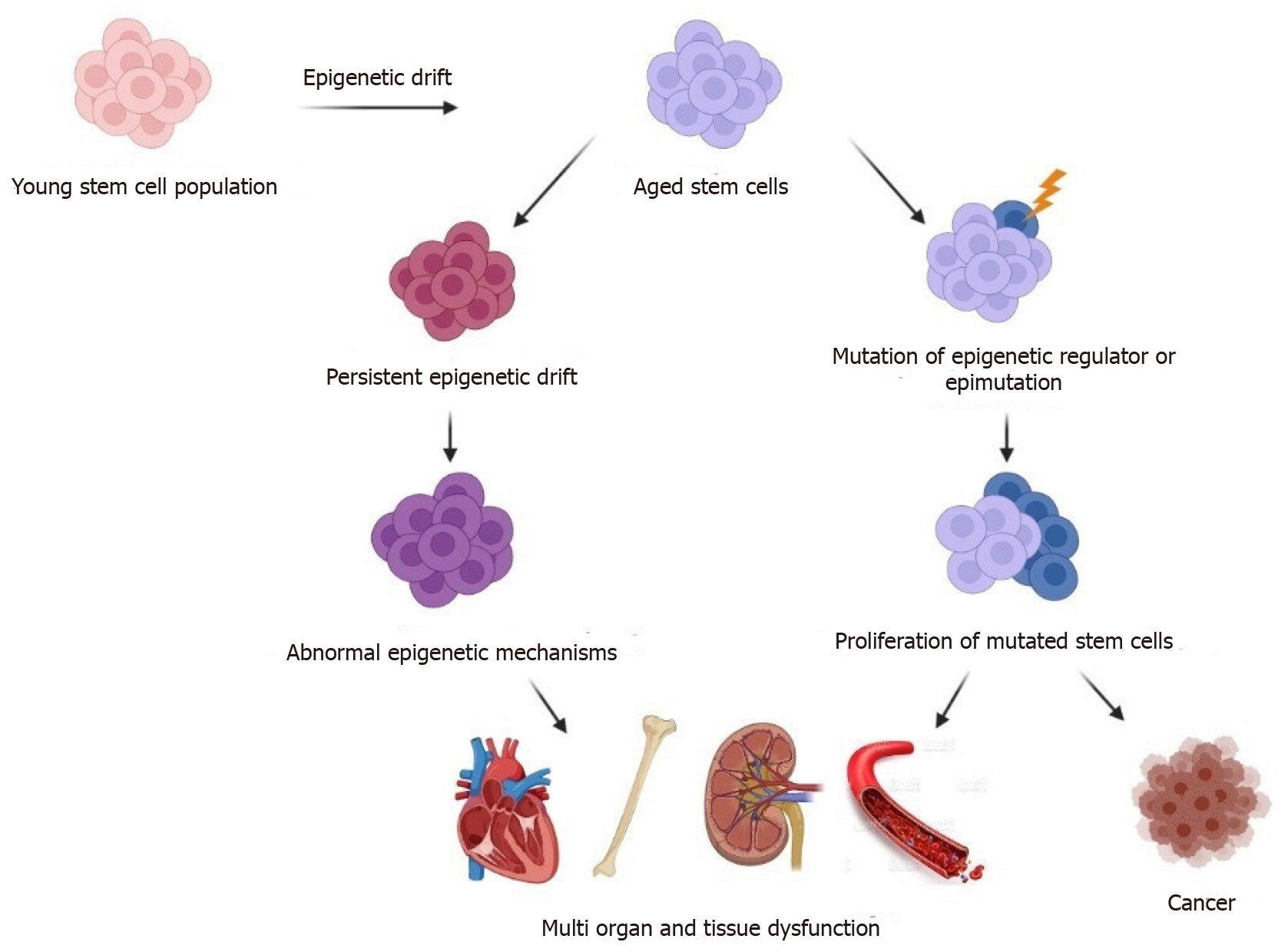Copyright
©The Author(s) 2021.
World J Stem Cells. Nov 26, 2021; 13(11): 1714-1732
Published online Nov 26, 2021. doi: 10.4252/wjsc.v13.i11.1714
Published online Nov 26, 2021. doi: 10.4252/wjsc.v13.i11.1714
Figure 3 Adult stem cells are altered by epigenetic drift and clonal expansion as they age.
The epigenome of adult stem cells undergoes epigenetic drift after reproductive age, which may be caused by molecular disruption, changes in the stem cell niche, or abnormal activation of developmental programs. Depending on the stem cell compartment, DNA methylation and histone modification alterations that accumulate with age can be different and have different effects. Epigenetic drift enhances self-renewal and impairs differentiation of adult stem cells, according to new research. Epigenetic drift causes deregulation of epigenome-sensible gene pathways in certain stem cell compartments, which promotes stem cell dysfunction. Mutations in epigenetic modifiers (for example, DNMT3A), Tet methylcytosine dioxygenase 2, and putative Polycomb group protein ASXL1) have been found frequently in aged haematopoietic stem cells and can lead to the selection of mutant stem cells (blue) that gain clonal dominance, resulting in impairments in adult stem cell differentiation.
- Citation: Picerno A, Stasi A, Franzin R, Curci C, di Bari I, Gesualdo L, Sallustio F. Why stem/progenitor cells lose their regenerative potential. World J Stem Cells 2021; 13(11): 1714-1732
- URL: https://www.wjgnet.com/1948-0210/full/v13/i11/1714.htm
- DOI: https://dx.doi.org/10.4252/wjsc.v13.i11.1714









